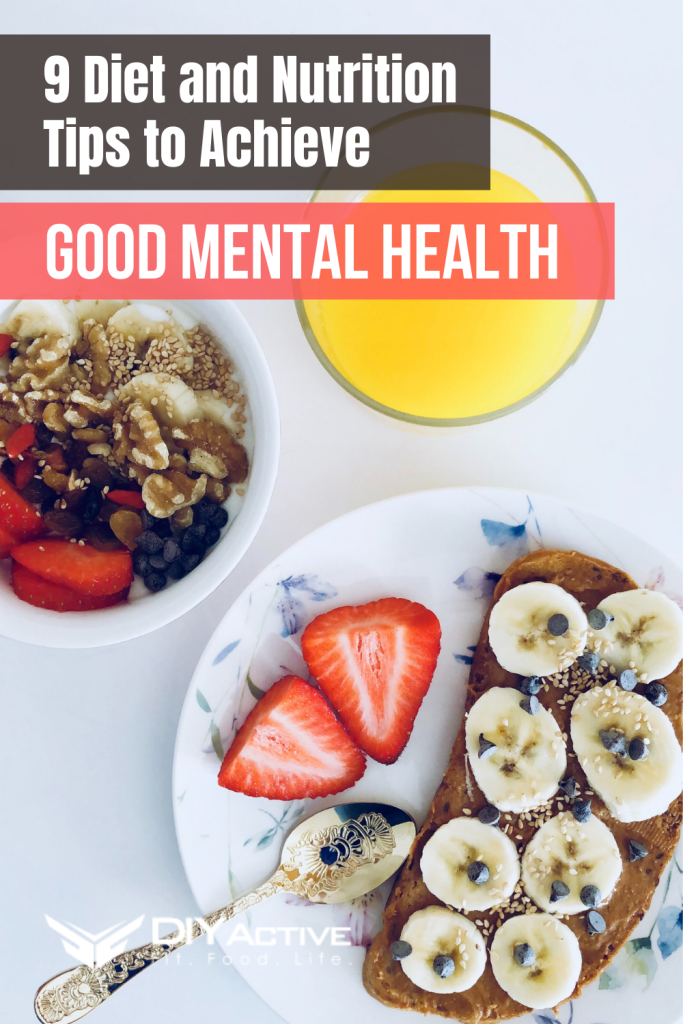
Diet And Nutrition Tips To Achieve Good Mental Health
Many people usually think that mental health is just about psychological well-being. Still, it covers a wide variety of areas, including what you do with your mind and body.
What Is Mental Health?
Mental health means that you’re generally in good emotional and psychological well-being. While many people believe that mental health means freeing any mental illness or problems, this isn’t always the case. Many people who have mental illnesses can still experience good mental health on some days while having periods where they struggle more.
Mental health also covers your ability to feel satisfied with life, your self-esteem, and self-confidence, how you handle stress, anxiety, and other difficult situations, as well as your body image.
Mental Health Matters For Everyone
Mental health is vital regardless of age, race, culture, or economic status. Jackson House and other community care centers that cater to mental health needs believe that your mental health deserves equal attention as your physical health, and it’s never too late or early to start caring for your mind and body. Mental health isn’t just a luxury that you can enjoy when times are good.
How Mental Health Problems Affects Your Body
Stress, anxiety, and depression can have a significant impact on your physical well-being, from affecting the nervous system to making it harder for you to eat healthily, exercise regularly, or rest adequately. Stress has the following effects on your body:
- Increases risk of cardiovascular disease, high blood pressure, and diabetes
- Weakens your immune system, resulting in your body struggling to combat infections
- It can cause headaches, back pain, and stomach problems
- Creates imbalances in weight or puts you at greater risk of obesity or anorexia
- It makes it harder to deal with pain or recover from illness or injury
What Affects Your Mental Health
A person’s mental health is affected by many unique things, including genes, personal life experiences, beliefs, and personality traits. However, some common factors can affect a person’s mental health, such as taking drugs, consuming alcohol in excess, and not getting enough sleep or rest. On top of that, there’s no denying that your nutrition intake also significantly influences your general state of mind, which means that you should try to watch what you eat.
How To Improve Your Mental Health
Many people think that they have to live with their stress, anxiety, and depression to achieve good mental health, but that’s not all it has to take. You can do several helpful things to improve your mental health and bring more happiness, contentment, and satisfaction to your life.
While you can’t control everything that will affect your mental health, you can still protect the well-being of your mind. It’s important to remind yourself that if you feel something isn’t right or something significant has happened in your life that has profoundly affected you, you should visit a therapist.
Beyond that, one of the best things that you can do to keep your mind healthy includes eating right and starting a regular exercise program. While this is obvious, most people spend more time thinking of ways to lose weight rather than gaining some good habits which are great for their mind, such as eating whole foods and exercising regularly.
Here are nine diet and nutrition tips to help you achieve good mental health:
1. Avoid High Sugar Or Fat Content Food
 Sugar and fat cravings can be hard to control. When your body ingests too much of either, it messes up the chemical levels in your brain and makes you feel tired, lethargic, and unhappy. That’s why it’s crucial to maintain a Healthy Meal Plan that doesn’t contain many of these ingredients.
Sugar and fat cravings can be hard to control. When your body ingests too much of either, it messes up the chemical levels in your brain and makes you feel tired, lethargic, and unhappy. That’s why it’s crucial to maintain a Healthy Meal Plan that doesn’t contain many of these ingredients.
Sugar is a simple carbohydrate your body digests very quickly. The result of excess sugar consumption can make you feel moody, anxious, and depressed. It’s best to avoid simple carbohydrates as much as you can because they tend to raise insulin production in our bodies, a hormone responsible for making you feel hungry, even if your body doesn’t need food.
On the other hand, fat is also an essential nutrient for your body. However, it’s best to watch how much you’re taking in because too much of it can make you feel sluggish and tired.
Plus, when your body ingests excess fat, it tends to store these in different parts of your body, where they are used as energy. That’s why you should try to get good fats from foods such as nuts, avocados, and fatty fish.
2. Avoid Or Limit Caffeine Consumption
Caffeine is a stimulant that provides temporary energy by increasing the blood flow to your brain. It also increases dopamine concentrations in your body, regulating mood and happiness. However, too much caffeine makes you feel anxious and irritable. Limiting caffeine consumption is best if you suffer from mental health problems, especially depression.
If you’re interested in quitting coffee, it’s best to do so slowly. For instance, drink half a cup of coffee today and drink the other half tomorrow. Gradually decrease your coffee intake until you finally kick the habit altogether in the following days.
3. Reduce Alcohol Intake
A glass of wine or beer once in a while can be good for your health. However, too much intake can affect your emotional well-being. Alcohol is a known depressant that slows the functioning of the central nervous system by slowing down neuron activity in your brain. It also means that it impairs your judgment and reasoning
While you may feel happy when you drink, it’s important to remember that alcohol alters the chemical composition of your brain, which means that drinking too much can result in a negative impact on your mental health.
4. Don’t Skip Breakfast
Breakfast, as everyone knows, is the most important meal of the day. A healthy breakfast gives you energy and helps you get through the day with ease, while a poor breakfast will leave you feeling sluggish and irritable.
Research shows that people who skip breakfast tend to have higher levels of stress hormones, such as cortisol which increases your chances of getting mental health problems, such as depression.
5. Drink Plenty Of Water
Hydrating your body with enough fluids is one of the best things that you can do to maintain good mental health. When your body is dehydrated, the blood flow to your brain decreases, affecting its ability to function normally.
It also results in less oxygen and nutrients getting delivered to it. Besides this, dehydration can make you feel tired, moody, and anxious.
6. Make Use Of These Spices
Turmeric, ginger, cinnamon, garlic, and black pepper are all essential spices that promote good mental health. Turmeric contains curcumin, an antioxidant that reduces inflammation and slows the progression of age-related mental health problems such as memory loss and dementia.
Ginger can help fight stress and anxiety by suppressing cortisol production in your body, while cinnamon helps reduce depression symptoms. Moreover, garlic can help improve your memory, while black pepper helps fight anxiety.
7. Consume More Of These Minerals And Vitamins
Omega-3, magnesium, and B vitamins are essential nutrients that promote good mental health. Foods such as salmon, flaxseeds, walnuts, and eggs provide your body with omega-3 fatty acids; while leafy greens, nuts, seafood, and bananas contain magnesium; whole grains and beans contain vitamin B.
As with anything essential in life, balance is vital. While any of these could prove beneficial to your mental health, it’s important not to overdo it. Even if it’s good, taking too much of something can turn into a bad thing.
If you’re taking any supplements, make sure that your doctor knows about them before you start taking them. Plus, make sure that you’re not depriving your body of other essential nutrients.
8. Schedule A Regular Exercise
Staying consistently active is one of the best things that you can do to maintain good mental health, especially during stressful times. Exercise helps release endorphins in your body, which promote a positive mood and reduce anxiety.
Endorphin production increases when you laugh and smile, so it’s also good to try and have good humor about life’s challenges.
9. Get Enough Sleep At Night
Lastly, most people have experienced the effects of a lack of sleep on their mental health; however, not everyone knows that chronic sleep deprivation can lead to long-term mental health problems such as depression and anxiety.
Your brain resets itself out when you sleep, so during a night’s rest, it recharges so it can function properly when you’re awake. During sleep, your brain also does many important things, such as processing information and stabilizing moods. So you must get enough rest at night to maintain good mental health.
Sleep helps your body recover from daily stressors, and it also allows your brain time to rest so that you have enough energy during the day. Also, getting a good night’s rest lets your brain process memories and emotions, which helps you form and recall memories better.
Wrap-Up
Following these diet and nutrition tips regularly can help improve your mental health in no time. However, remember that it isn’t just a one-time thing you do for a few months and then quit.
You need to be consistent with what you’re doing if you want your mental health to improve significantly.
Photo by Sarah Chai from Pexels



